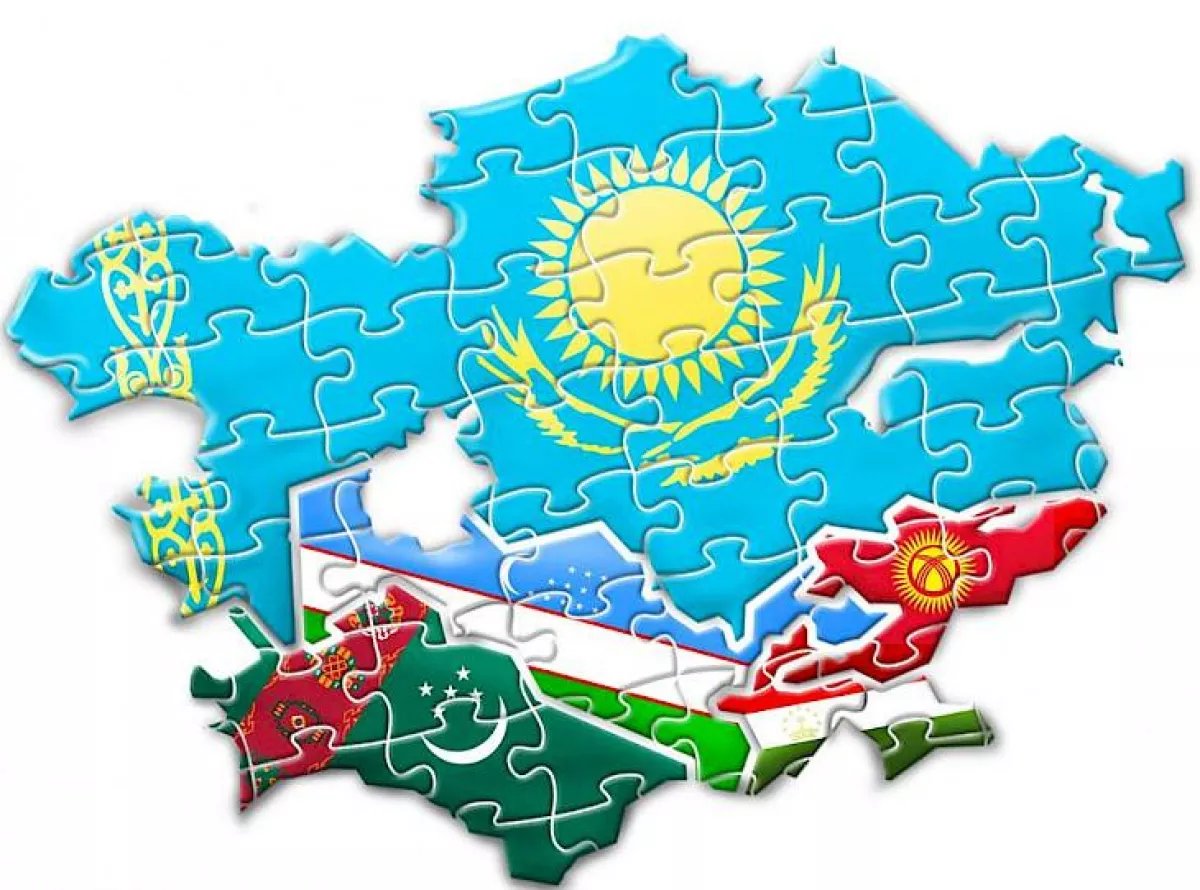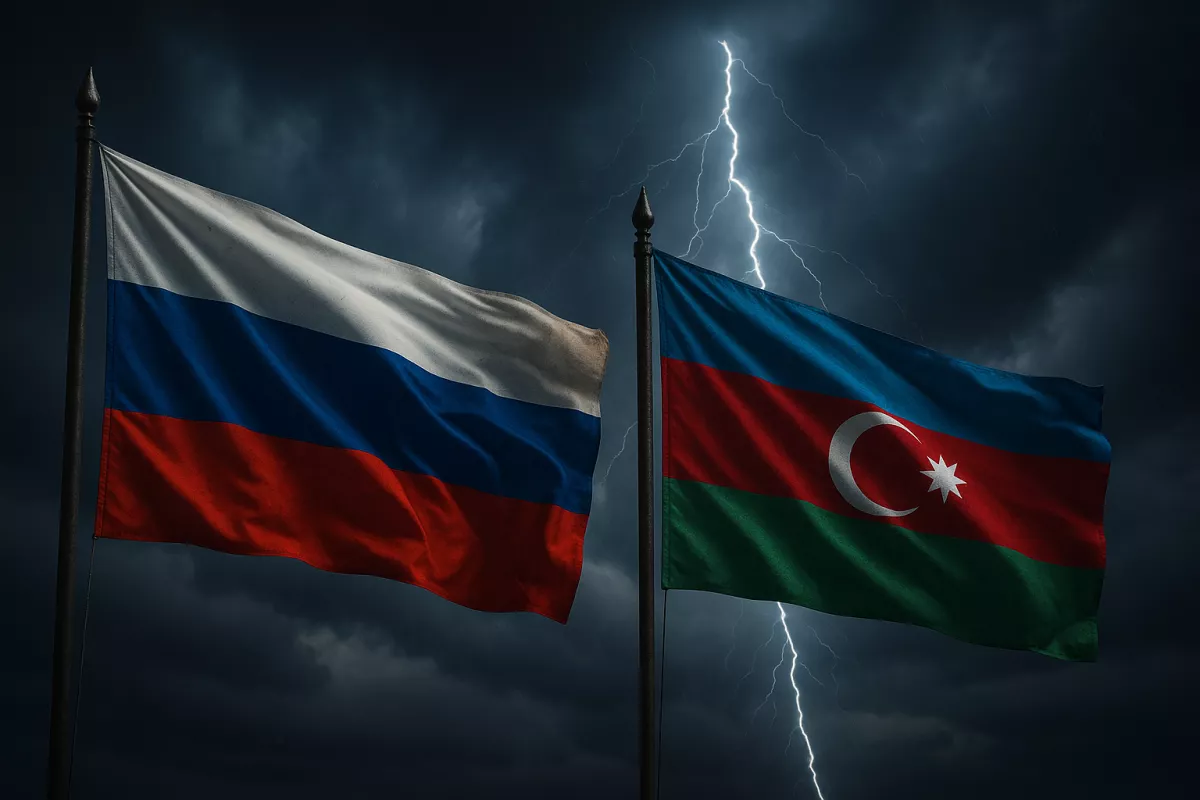Moscow's anti-Azerbaijani sentiment: From enemy image to political propaganda Interview with Russian pundit
Caliber.Az presents its interview with Russian political analyst and international relations expert Grigory Trofimchuk. In this conversation, he examines the rise of anti-Azerbaijani sentiment in Russia, its connection to the broader collapse of the post-Soviet space, and the dangerous role of propaganda in fuelling hostility. Trofimchuk also reflects on Moscow’s internal dynamics, the inevitable turbulence facing Central Asia, and the urgent need for effective information strategies to counter disinformation and prevent a deeper crisis in interethnic relations.
— In Russia, an anti-Azerbaijani campaign continues, recently escalating into a frightening wave of hatred: arrests and detentions are occurring almost exclusively based on nationality, with Azerbaijanis being targeted across various sectors. For example, in the Ivanovo region, the leader of the Azerbaijani diaspora was forced to withdraw his candidacy for the local Duma elections from the ruling party, United Russia, following attacks from Z-propagandists. How can the goals of this xenophobia, clearly orchestrated by Russian authorities, be explained?
— If we set emotions aside, this is quite a natural course of events in history during the final collapse, breakup, fragmentation, and dismemberment of the remnants of the Soviet Union. Such a disintegration cannot happen without checkmate, without wars, and without the blurring of former borders. It has always been this way. There is little pleasure in it, so all that remains is to simply observe.
It can be said that Azerbaijanis have temporarily become the “main enemy” in the eyes of much of the Russian population — a perception that has shifted over time since around 2006, if we look at recent history. First, it was Georgians and Georgia, then the Chinese, and then, Ukraine.
Now that fatigue has set in with the previous targets, Azerbaijanis have emerged. Let’s try to predict who will take up the passing baton next. There is no specific agenda here — just the current political climate.
However, all of this, interconnected as it is, highlights a larger issue: the final collapse of everything that once existed under the abbreviation "USSR." Each conflict within this dead Soviet space accelerates its breakup. And there will be many more. Yet, no one will be able to prove anything to anyone.
— Inevitably, the following questions arise: "Is it really impossible for Russia to live differently?" and "Does it truly need the image of an external enemy to sustain its current society and political system?" It is also worth noting that xenophobia towards certain nationalities, such as people from Central Asia, is currently gaining momentum in Russia as well.
— The image of an enemy is something almost everyone needs today, even if few are willing to admit it. Unfortunately, it serves as the most effective fuel accelerating the final breakdown of this system, as I mentioned earlier. In principle, both Russia and everything around it could live differently. But what is, is. This doesn’t justify anything; it’s simply a fact.
In theory, Russia and everyone around it could choose a different path. But the reality is what it is. This doesn’t excuse anything—it’s simply a fact.
Everything else is just speculation—possible ways things might develop. You brought up Central Asia for a reason. So far, it hasn’t been seriously affected, not even by war; it seems to have been saved for last. But the broader collapse won’t leave it untouched—that’s simply not possible, no matter how optimistic the media or the region’s constitutions might be.
This area is where the interests of many collide: the Turkic world, Russia, China, the EU, the US, and not to mention various radical groups ready to jump into action at any moment. If you narrow down the players involved, ask yourself: “Is China, for example, truly prepared to go to war over this territory?” That’s exactly what I’m getting at…

At the same time, the countries of Central Asia have shown a genuine willingness to maintain friendly relations with all sides. While this approach is understandable and commendable, high-level politics rarely operate that way. These countries aren’t really in a position to make firm decisions themselves, which means those choices will likely be made for them — often without much consideration of their views.
In my opinion, the breakup of the Eurasian integration bloc is already inevitable. The issue is that officials and administrators tend to view these challenges through a narrow, bureaucratic lens, failing to grasp what needs to be done at critical historical moments. And, of course, corruption complicates matters further. Is China willing to crack down on local and regional corrupt officials, even within joint projects? Probably not. Without addressing that, real progress simply isn’t possible.
Russia cannot do without labour migrants, including those from Central Asia. But here the conflict hits a dead end: Russian radicals, who have been given free rein to express themselves, are strongly opposed, and the authorities can no longer easily ignore their views — especially against the backdrop of the ongoing conflict in Ukraine.
It’s no longer possible to simply encourage renewed acceptance of Tajiks, Uzbeks, Kyrgyz, and others — there is no political foundation for that. Incidentally, Azerbaijanis have now also been firmly lumped together with “migrants,” even though they have traditionally occupied a different social niche. But now everything is thrown into one pot, and no one bothers to sort out the details.
— Some experts and analysts, including Russian ones, speak of a loss of unified political subordination in Moscow and the existence of several centers of power within Russia, each with its own agenda: one focused on dialogue with Baku, and the other on fueling anti-Azerbaijani sentiment.
While the first promotes a positive agenda and a willingness to seek compromises with Azerbaijan, the latter engages in actions that undermine the dialogue. This, perhaps, is the only way to explain the current turbulence in Russia-Azerbaijan relations. For example, following a joint intergovernmental commission meeting in Astrakhan, where important economic agreements were discussed, anti-Azerbaijani rhetoric and persecutions suddenly intensified again in Russia. How do you view this perspective?
— Observers have long talked about an alleged "struggle of towers" in Russia, and today, as you mentioned, there are supposedly different "centers" with differing views on Russia-Azerbaijan relations. Personally, I have long argued that there are no such "towers" (perhaps some wish there were, but they exist only architecturally, as always), nor are there such "centers."
Certainly, there are individuals who interpret events differently here and there, but their opinions do not translate into political action; they remain just opinions. Those who are actively stirring things up are not hiding — it’s all visible now in the Azerbaijani context. And this, in itself, is driving our bilateral relations further and further apart.
I want to emphasise that nowadays, such candid statements are no longer strictly prohibited, and this marks the key difference between today’s scenario and the one we saw before. In these matters, there is no room for independent actions — this tolerance, this permissiveness, is an important point that I want to highlight. In the past, such behaviour would have been immediately cracked down on, but now the “brakes” have been released.
Moreover, alongside the freer expression of these views, there are now even more responsible officials who regularly add fuel to the fire, preventing it from cooling down. All of this exists without any so-called “towers” or rival “centers.” This rhetoric serves no purpose other than to provoke reciprocal hostility. Everything is starting to fall apart, and after this, a full-scale chaotic collapse in interethnic relations — which have already crossed all boundaries — is likely to follow soon. These are simply different stages of the same process, which at some point will become impossible to control.
I’ve often pointed out that Russia has no professional propaganda — I actually defend the term “propaganda,” since it’s not inherently negative. If effective propaganda existed, these large-scale problems around us simply wouldn’t have emerged. It seems Baku has recognised this too (which is understandable for anyone involved in serious politics). As a result, they have somewhat opened the door the other way, allowing the Azerbaijani press greater opportunities for a strong response.

Looking at the overall state of bilateral relations, for now, it’s mostly just harsh words being exchanged. Soon, it could escalate to stones, and as I’ve already mentioned, that may lead to the complete breakdown of what remains of the post-Soviet space into chaos.
Without a proper information environment and professional propaganda, there is little hope for improvement. It’s also important to note that much of the current unrest is driven by acts of “retaliation” and “reaction.” True centers of power don’t engage in this kind of behaviour — they rise above it. The hostility will only end when genuine authority and leadership take hold.
Therefore, at the very end of 2021, I proposed completely shutting down all our socio-political talk shows starting from January 1, 2022. Today, it is clear to everyone that this would have had a positive effect, as these shows had already exhausted themselves by then. As for whether to shut down similar programs in Azerbaijan, that is for you to decide. However, I believe that much of your own information potential is also being used imprecisely.
— Let’s talk a bit about the methods of ideological warfare in Russia. One common tactic is distorting meanings and twisting them to fit a new narrative. For example, taking certain phrases out of context, as recently happened with the term “occupation,” which President Aliyev used to describe the policies pursued first by Tsarist Russia and then by Bolshevik Russia in the South Caucasus.
Azerbaijan has never hidden its stance on this issue; it is recognised and is a historical fact. However, Russian Z-propaganda literally exploded in reaction to these words. Is it correct to say that the forces behind anti-Azerbaijani propaganda in Russia are inflaming tensions by exploiting the general lack of knowledge within Russian society on these issues and manipulating public sentiment?
— Today, each side firmly holds its ground, and it won’t be any different. Words spoken by all parties cannot be taken back. But in essence, this is exactly the state ideology you asked about. It is built from these kinds of details, whether people like it or not. And if they don’t like it, all complaints should be directed at Gorbachev, who surely understood the consequences of the collapse of such a vast, multinational country.
Today, each capital is constructing its own framework — its own school system, history, and everything else. The same applies to Russia, where many of today’s heroes were simply not mentioned before. And there’s no need to prove anything to anyone. Try winning over your closest neighbours with your arguments— that’s when you’ll see the real results of genuine propaganda, which is about love, not hate. And that doesn’t require any money, loans, or burdens.
For example, it’s hard to beat the popularity of a film like White Sun of the Desert in people’s minds — not only in Russia. Its screenplay was, among others, written by Rustam Ibrahimbekov. This is exactly where true propaganda—without quotation marks—is born. So, if you’re working on effective propaganda, just create a film stronger than that, one that everyone watches across borders. Although that’s very, very difficult. By the way, this idea could also be addressed to Azerbaijani TV channels, some of which offer full Russian-language content, yet are still not widely watched in Russia.
Unfortunately, the majority of Russians do not seek any special “awareness” or additional information. They already believe they know everything they need and have no interest in further details. They are confident in their own perspective on events and issues—just ask them about Ukraine, for example. That’s why so-called facts, evidence, videos, audio recordings, names, and the like don’t work and aren’t needed by anyone — and the same applies to Azerbaijan.








